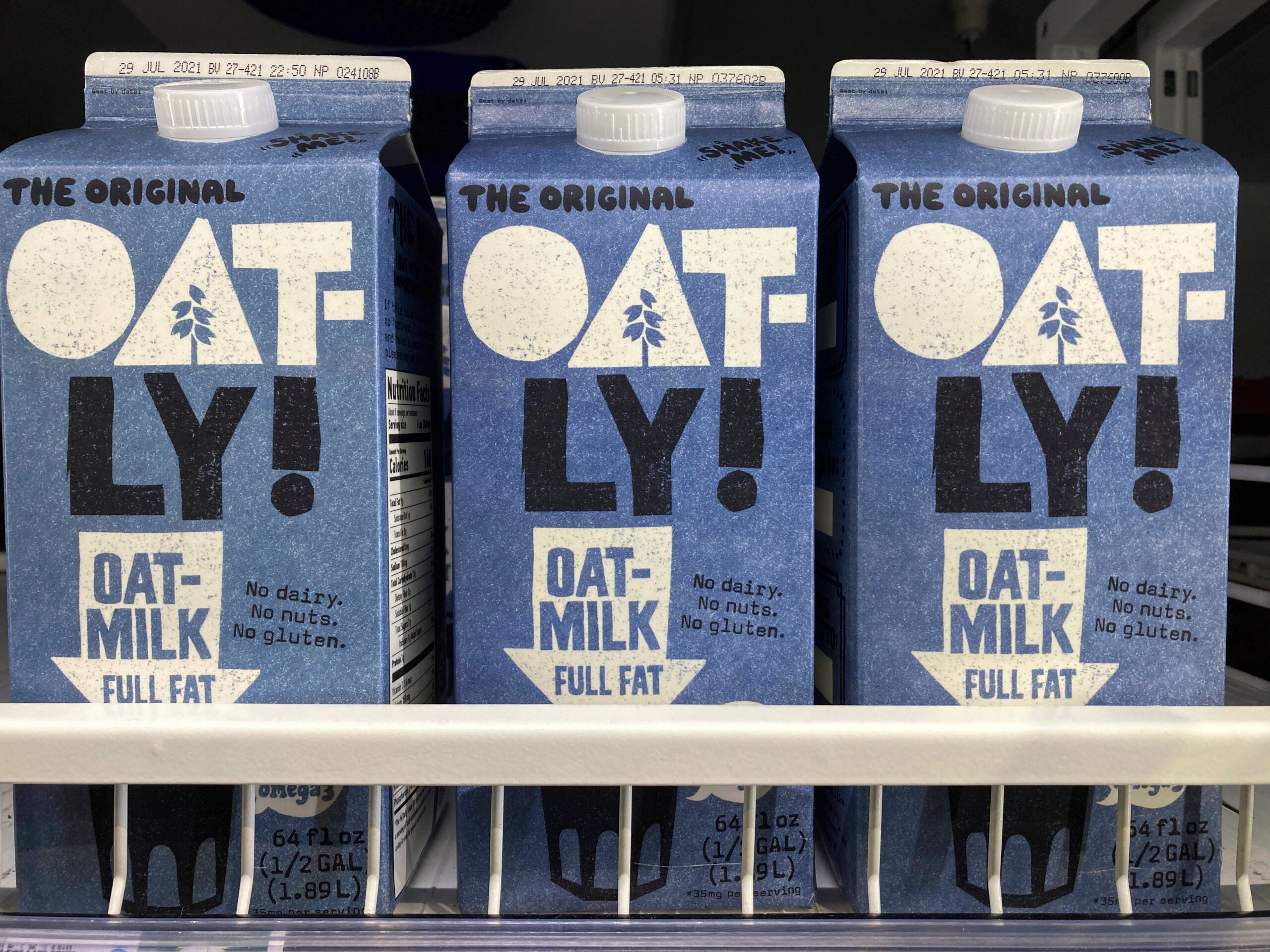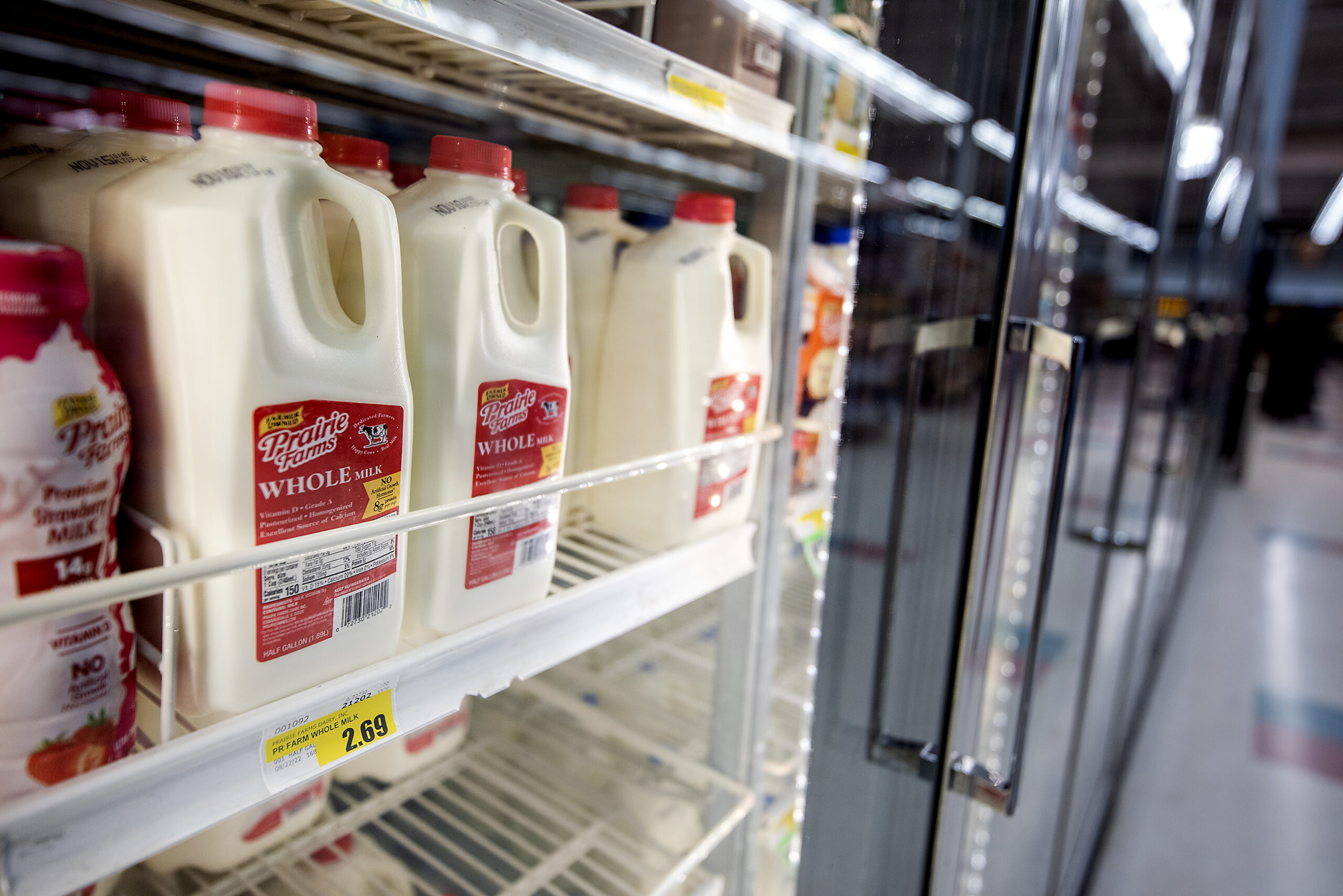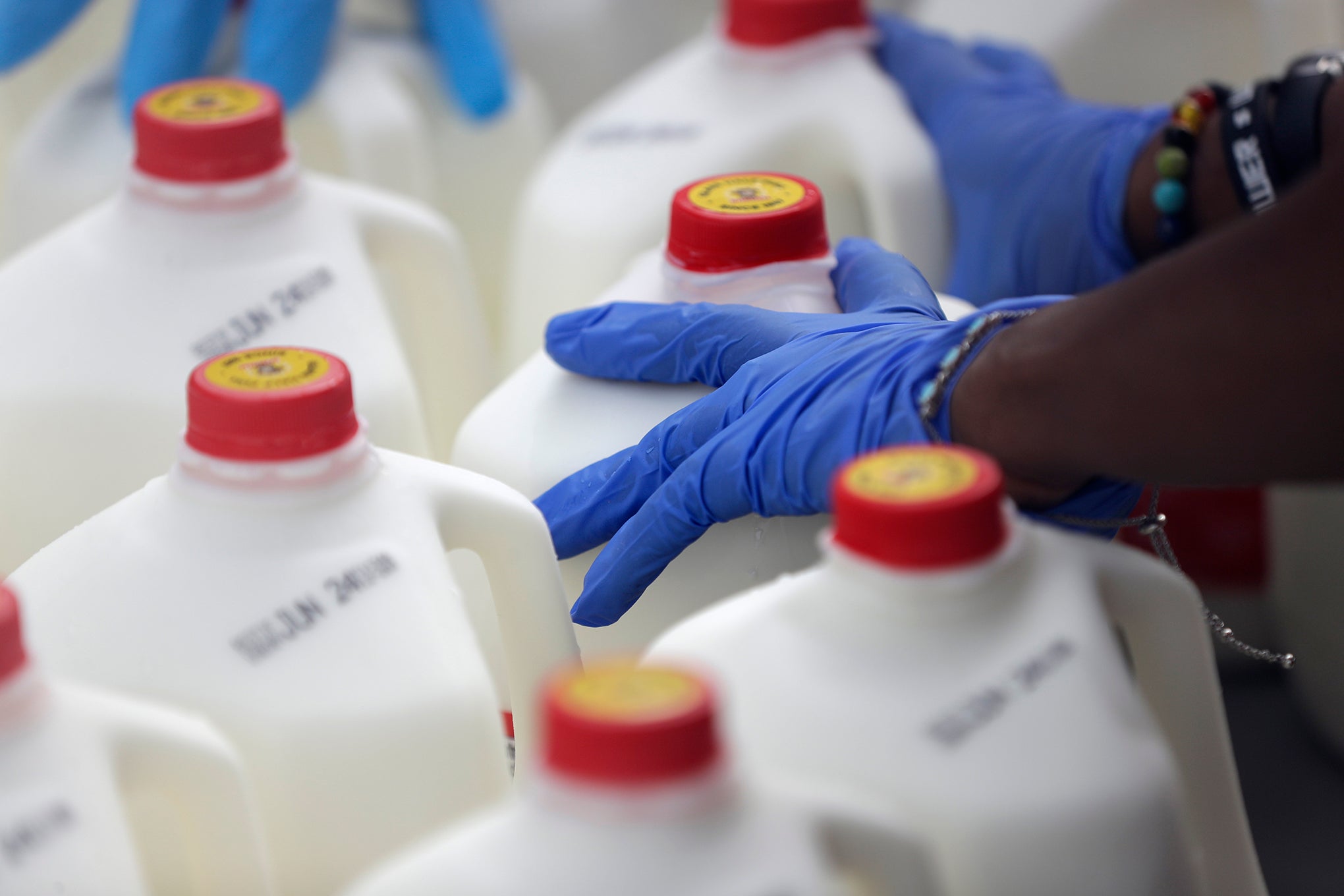The U.S. Food and Drug Administration’s new draft guidance for plant-based milk alternatives is sparking mixed reaction among the dairy industry.
The FDA released their draft guidance Wednesday after first requesting comment on the use of dairy food names by plant-based products in September 2018.
Based on studies and focus groups, the FDA found that consumers do not mistake plant-based milk alternatives for milk.
News with a little more humanity
WPR’s “Wisconsin Today” newsletter keeps you connected to the state you love without feeling overwhelmed. No paywall. No agenda. No corporate filter.
“Although many plant-based milk alternatives are labeled with names that bear the term ‘milk’ (e.g., ‘soy milk’), they do not purport to be nor are they represented as milk,” the draft guidance said. “The comments and information we reviewed indicate that consumers understand plant-based milk alternatives to be different products than milk.”
With names like soy milk and almond milk now widely used, the FDA stated that plant-based alternatives can continue to use the term “milk” in labeling.
But the agency also found there is consumer confusion around the nutritional content of plant-based alternatives. And officials expressed concern that growing consumer preference for the products could lead to consumers not getting enough calcium, vitamin D and other important nutrients.
The agency found that many consumers who purchased plant-based alternatives believed the products have a nutritional content similar to milk or are healthier than milk. But the actual nutritional content varies from product to product because there are not established standards.
“Therefore, consistently consuming plant-based milk alternatives that do not have a similar nutritional composition to milk in place of milk, without the addition of other foods to supply the missing nutrients, could lead to further inadequate intakes of nutrients of public health concern and other nutrients that pose a special public health challenge,” the draft guidance states.
The agency recommends that plant-based alternatives using the term “milk” in their name also state on their primary label that the product contains lower amounts of certain nutrients than milk.
This decision sparked anger from some dairy advocates, including Democratic U.S. Sen. Tammy Baldwin. In a press release issued with Republican U.S. Sen. Jim Risch of Idaho, Baldwin sharply criticized FDA for allowing “the unfair use of dairy terms.”
“This misguided rule will hurt America’s dairy farmers and our rural communities,” Baldwin and Risch said in the release. “Since the FDA is failing to enforce its own definitions for dairy terminology and stop imitation products from deceiving consumers, we will be reintroducing our DAIRY PRIDE Act to stand up for America’s dairy farmers and the quality products they make.”
Baldwin first introduced the DAIRY PRIDE Act in 2017, which would require the FDA to enforce the federal definition of milk as the “lacteal secretion … obtained by the complete milking of one or more healthy cows.”
But some industry groups said the new guidance is a partial win in this yearslong fight for dairy producers. Mykel Bickham, director of government affairs for Edge Dairy Farmer Cooperative in Green Bay, described it as a “double-edged sword”.
“It does take a step forward in recognizing that the nutrient profile is not the same. And that has been a huge issue for us as a dairy industry because folks buy these alternatives because they think they are more nutritious for some reason or another,” Bickham said. “So we do see that part as a win, but we are disappointed to see FDA recognize ‘milk’ as a standard name for dairy alternatives.”
Bickham said the FDA allowed plant-based alternatives to use the name milk for “far too long,” which has allowed plant-based products to establish the common usage of soy milk or almond milk.
“The cat’s kind of out of the bag there in the fact that they’ve used the name of the dairy alternatives for so long that it would be very hard to claw that back,” she said. “But that being said, it is still not right and it is not following the actual regulation and the standard of identity for milk.”
The National Milk Producers Federation expressed similar sentiments, calling the FDA’s decision-making “circular logic” that inaction on regulating the use of milk now means most plant-based products use the term.
National leaders in the plant-based food industry expressed their own frustrations with the FDA’s guidance. A press release from the Plant Based Foods Association called the recommendation for added nutrient statements “unprecedented, unwarranted, and a solution in search of a problem.”
“We commend the FDA’s acknowledgment that consumers are affirmatively choosing plant-based milks because of their many benefits for human and planetary health,” said Rachel Dreskin, CEO of the Plant Based Foods Association, in a statement. “However, we see many suggestions in this proposal that are unfairly burdensome to companies, and frankly, treat plant-based products differently than any other foods in the market.”
The group claims the FDA guidance implies that plant-based products are “somehow inferior” to dairy, “despite the fact many of the nutrients boasted by animal-based milk are the result of fortification.” The group said the guidance would lead to lawsuits and further burden on the plant-based industry, and said they are reviewing legal options to reverse the draft.
The FDA is taking comments on the draft guidance until April 24.
Wisconsin Public Radio, © Copyright 2026, Board of Regents of the University of Wisconsin System and Wisconsin Educational Communications Board.







